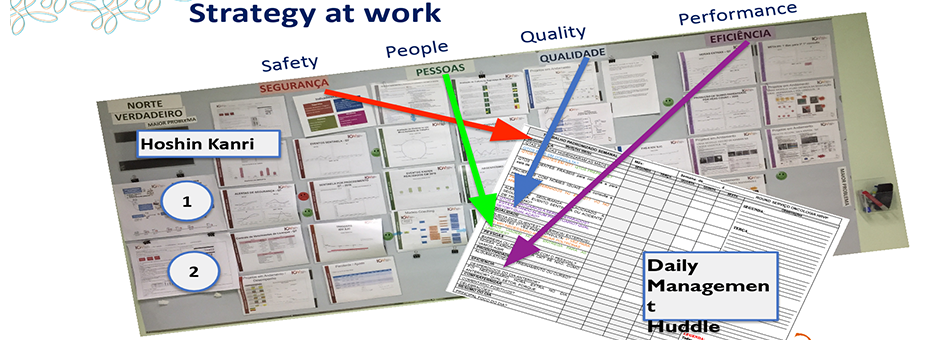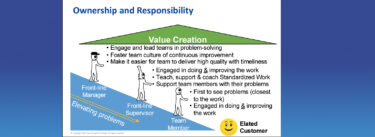More than 20 years ago, when I was an oncology fellow, one patient of mine taught me invaluable lessons about framing expectations at a time when the natural response is to fixate on results. She had incurable ovarian cancer and faced a heavy chemo treatment ahead, with terrible side effects. But somehow the calendar favored us. She asked me if she would be okay for Christmas when she would be 65, and I replied “Yes, for sure.” I was not sure when I said this, but she made it. Then it was her grandson’s pre-school graduation for the next round, and she did it again. And then followed many others small victories that were not clear for me how valuable they were for her in different ways. She benefited from every new drug launched.
Some years later, I was already working at IOV and she sent me a goodbye message: those were the best years of her life, she lived every moment intensely, filled with love, and with the support of her family; she just wanted me to know that. Beyond cutting-edge science, I learned a lot about purpose and negotiation, resilience and human relations with this smart and passionate old lady.
Today I see success in different ways. It is not only about fighting cancer; I consider success to be about helping patients have a meaningful life with no guarantees. Oncology has made me a humble runner. Sometimes it’s a marathon, sometimes it’s not. Sometimes, even when you set the bar in a reasonable range, things can go wrong, which can occasionally mean death by toxic side effects. A close friend had recurrent breast cancer a few years ago and I was very comfortable about the treatment. A well-tolerated drug would be used, and minimal toxicity would be expected. And yet she died in the second week of chemo, due to a rare side effect reported in 0.3% of cases, after one terrible week in an intensive care unit. Human life is delicate and transitory, and believing you are in “command and control” does not fit reality.
When I moved from clinical work to management, my passionate patient teachings made me more easygoing with slower progress and bad results as a leader. Change does not follow the same pace for everyone, nor understanding what we are trying to do progress at the same rate for every individual. In one of our early A3s, we struggled with “takt time” for appointments in a crowded public facility. We were trying to find ways to reduce delays, and we were not comfortable with the original idea that would require a lot of pressure about being “on time”. We had to tolerate failure to meet takt time for months until we gave up. Each patient has a different story with different expectations – trying to find a solution to every patient was very complex, expensive and not adding a lot more value; some are outspoken, some are not – some love to share their family story, some don’t. When asking patients about our failures, most considered 15 minutes delay irrelevant if the appointment was meaningful. We found that we hadn’t negotiated a good purpose with our customers. We then used small batches with buffers for appointments instead of takt time. Now doctors work with minimal time constraint and patients are “ok” with 10-15 minutes delays from time to time, but they are never rushed from the exam room. We never tried to use takt time for appointments again.
We learned something else from this. We can identify a lot of great ideas translated into actions that are, actually, crossed signaling: someone is promoting or saying one thing, but actions are going exactly in the opposite direction. Meet patient’s “on-time appointment” expectations were in the wrong direction, and this kind of problem was more frequent than we could imagine. We faced a lot of trouble dealing with what we call “never events” (like a wrong medication, a fall, or a wrong procedure). We tell everyone that our problems are “process problems and not people problems”, and yet it took years for us to reduce disguised or direct punishment associated with these events. These punitive actions in fact were a terrible “crossed signaling.” Leaders were not tolerant or resilient to mistakes or failures and they usually didn’t give a second chance for those who failed: if you fail in your first attempt, someone will take your place in this activity (most of the time, the leader herself will micromanage the problem).
One “a-ha” moment for me has to do with seeing “mistakes” through different mental models. Brazilian culture, which is deeply influenced by Christian religion, sees mistakes as a moral failure or a sin to be punished. Yet the ancient Greeks, such as Aristotle, framed a mistake as a bad shot, that’s all. From Aristotle’s perspective, you just should try again, you can improve your shot by repetition, it has nothing to do with a moral failure, there is no blame.
To reduce micromanagement (mostly a disguised punishment policy) we decided to break align ourselves into “trios” at gemba: one leader (coach), one A3 owner (trainee) and one observer to help “realign signals” and avoid the leader punishing trap “I’ll have to do it myself” or similar ones like “Why don’t you try…”. It’s a funny exercise in the beginning but it gets serious with experience. Leaders at IOV are evolving and coaching themselves almost all of the time, in an open learning environment. Everyone now uses standard work for gemba walks and reflection tools on aligning goals, resilient mindset and humbleness. We can set the bar high (and we call for that all the time), but it’s ok not to be there in the first leap, there is no blame.
This was probably our most successful initiative and became our “IOV Leader’s Manual” in 2015. We developed a format to teach purpose, resilience, humbleness and alignment and supported this with regular lean tools connected through real projects. At that point, our performance was attracting attention and many visitors: we were able to double our capacity in four different facilities with the same resources while improving safety and quality measures. But fighting cancer is more than chemo or radiation – or cutting-edge science. Fighting cancer is more than just being a great performer in half of the system. Our mission to “Reduce cancer burden among us all” could be accomplished in a pretty unlikely way. We began to cooperate and help the system understand MURA, MUDA and MURI by developing our people to help other people develop themselves. A cool win-win-win strategy.
We started sending our leaders to help other organizations improve their system while developing new leadership capabilities, with no guarantees – it was about training. In the hospital we were working with some years ago, a patient with a breast lump would take 150 days from first appointment to chemo; with the Model Line we created together it dropped to 75 days; surgery capacity increased 20%, chemo and radiation capacity doubled with the same resources. Since 2017 we are supporting another 400 bed emergency hospital; they were able to reduce door-to-door time 40 to 60% in the emergency department. Sepsis mortality reduced by 30% with the “Sepsis A3″, overall mortality dropped 4.5%, more than 180 lives were saved in 2019.
When volunteering recently with a big and complex public healthcare system (in my 700,000 inhabitants’ town), I had that humble and resilient runner experience from my early days again: “command and control” is not a possible role in such a system. We used our leader’s manual content – we were among leaders – some far more experienced than me, leading thousands of employees. We opened 4 small and humble projects to learn about lean, supporting 3 hours weekly and “open gemba walks” at IOV (“come and go, see it working with our local leaders”). In a few months, they created more than 15 other teams and projects, a two-layer huddle system to manage it, a training program, and leaders doing weekly gemba walks in some of their more than 60 facilities. Several processes were improved with minimal organizational effort. In one year, they saved more than R$ 5 million (US$ 1.2 million) in logistics. Access to some specialists (urology, cardiology, orthopedist) dropped from more than a year to 45 days. They doubled their blood sampling capacity. Reduced their response time for maintenance by half in several areas. Waiting time to access an oncologist now is around one week. 2020 challenges involve same day appointment for primary care doctor in 50% of the system, and 80% of elective surgery in 90 days.
What I learned about purpose and negotiation, resilience and human relations from my patients became the backbone of our approach: reduced pace helps to ask better questions; there is no blame in failure so, do not cross-signal your behavior by micromanaging; my peer is the best person to help me develop myself. And yes, it’s a marathon, with obstacles.
Keep Learning
Your chance for an even deeper dive into the lean journeys of Dr. Pinto and the Instituto de Oncologia do Vale comes at the Lean Summit, April 6-7, 2020. Make plans now for you and your team to attend using the special team discount. Click here now for details.





